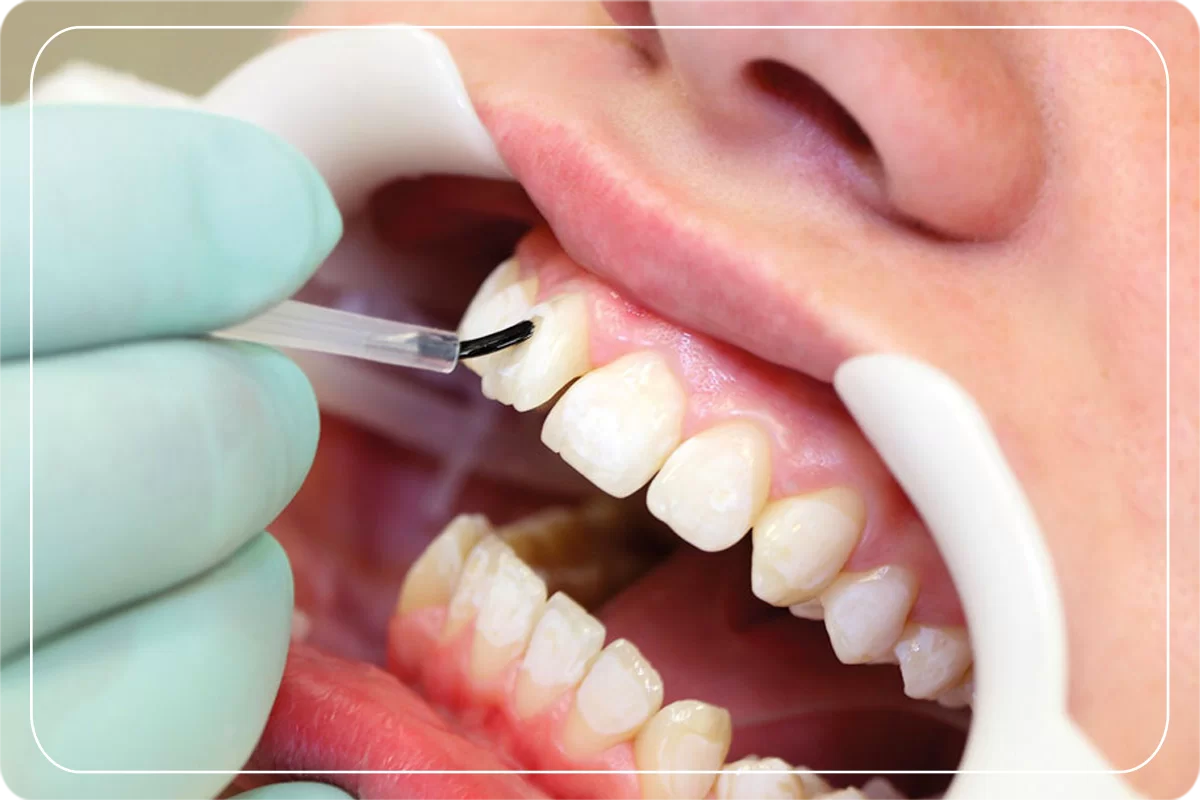Transforming Smiles with Precision and Care
In the world of dentistry, dental bonding has emerged as a favored option for those seeking to enhance or restore their smiles. This versatile procedure involves the application of a tooth-colored composite resin material to correct various dental imperfections, such as chips, cracks, or gaps between teeth.
The success of dental bonding, however, relies heavily on three key aspects: the expertise of the dentist, the quality of the composite resin material, and the suitability of the teeth for treatment.

When it comes to dental bonding, the role of the dentist cannot be overstated. The artistry and precision required in this procedure demand a high level of skill and experience. A qualified dentist not only understands the nuances of dental anatomy but also possesses the aesthetic sense needed to achieve natural-looking results.
During the bonding process, the dentist meticulously prepares the tooth surface, ensuring that the composite resin adheres properly. This preparation involves etching the enamel and applying a bonding agent, which requires a delicate touch and a keen eye for detail. An experienced dentist will assess the patient’s dental needs, taking into account the shade, translucency, and texture of the resin to match the natural teeth seamlessly.
The choice of composite resin material is another critical component in the success of dental bonding. Not all composite materials are created equal; the quality of the resin used can significantly impact both the aesthetics and durability of the bonding. High-quality composite resins are designed to mimic the appearance of natural teeth, offering a range of shades and translucencies that can be precisely matched to the patient’s existing teeth.
Moreover, superior materials often exhibit enhanced strength and resistance to wear, ensuring that the bonded area remains intact and functional over time. When patients opt for dental bonding, they should inquire about the type of composite resin being used and the manufacturer’s reputation. Investing in high-quality materials not only contributes to a more aesthetically pleasing result but also enhances the longevity of the treatment.
While dental bonding is a highly effective solution for many dental issues, it is essential to assess whether the teeth are suitable for this treatment. Not all dental conditions are appropriate for bonding, and a thorough examination by the dentist is necessary to determine the best course of action.
Teeth that are structurally sound and have minimal decay or damage are ideal candidates for bonding. If a tooth is severely compromised or has extensive decay, alternative treatments such as crowns or veneers may be more appropriate. The dentist will carefully evaluate the patient’s dental health and discuss potential options, ensuring that the chosen solution aligns with the patient’s needs and goals.
Additionally, the effectiveness of dental bonding can be influenced by factors such as oral hygiene and lifestyle habits. Patients should be encouraged to maintain excellent oral hygiene practices and avoid habits that could compromise the integrity of the bonded material, such as biting nails or using teeth as tools. By addressing these factors, patients can maximize the benefits of dental bonding and enjoy a dazzling smile for years to come.
If you’re considering Dental bondings, be sure to consult us to discuss your options and determine if they’re the right choice for you. With the right care and attention, your new smile could be just a few appointments away! Contact us via WhatsApp: +90 530 889 2139, email: [email protected], or direct message on our Instagram page (doctor.bayar).
